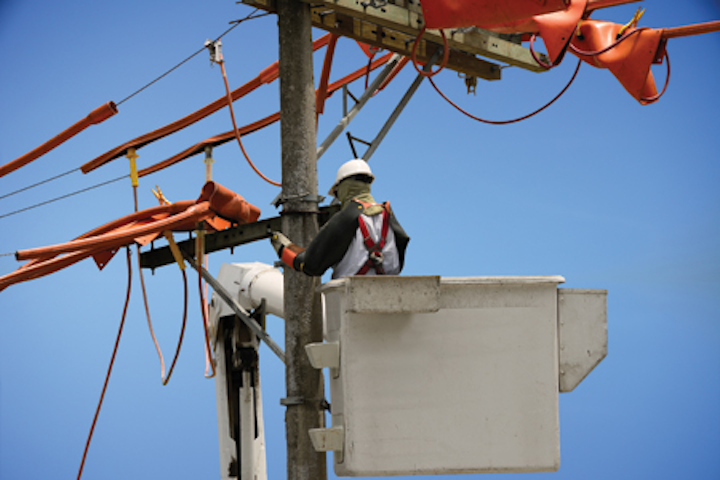
Electric lineman duties are very essential in the construction and maintenance of homes, stores, hospitals, offices, roads, dams, and so many other constructions. He is responsible for constructing and putting up things that provide electrical power to make things work properly and also for removing things that need to be taken out. Other than these duties, he may be a fireman or a search and rescue (SAR) member.
An electrician is required to carry the appropriate electrical lineman tools, wear appropriate clothing for the job such as a belt, knee pads, shoes, long coat, and shirt, safety glasses and a helmet. He has to carry his electrical lineman tools in a backpack, storage shed, car, or some other vehicles; and a safety jacket; and must also carry an extra battery that will support his load. He may also carry equipment with him that he will use for searching for the places in case of a power cut. He may use a whistle, a radio, a radio transmitter, thermal cameras, and the information he will need from the areas. He will also carry an emergency response kit that has flares, gloves, masks, helmets, flashlights, and first aid kit.
There are several key aspects to being a lineman. Knowing basic safety is one of them. You have to be aware of potential danger areas. These areas may be not visible to you. They are visible to an inspector. You must never operate a low-voltage electric power line. A “low-voltage” electric power line is a line that has a power rating of fewer than 150 volts. Electrical lines will generally be marked with a letter “L” to indicate a low voltage.
Never operate an electrical line. This should be done only by trained professionals who know what they are doing. When working, do not wear any clothing with a flat top that could cause contact with a high voltage electrical wire. Wear clothing with no seams. Don’t hold the pole with both hands. Keep your hands inside the cover when attaching a dropped conductor or securing a breaker. These jobs require both hands. Hand holding will interfere with your ability to see and follow the directions of the manufacturer.
High voltage electrical wiring can be dangerous if not done correctly. Not all wires can handle the potential hazards of high voltage. Be sure you are purchasing the right type of wire for your job. Certain wires may not be recommended for certain jobs. The jobs involving electric wires and switches may not require a license. Keep in mind that license requirements vary from state to state. If you are not sure about what type of license you need, contact your local licensing board to find out.
Do not try to solder or crimp electric wires. Those types of actions can cause electrocution. If you are working near a power line, wear protective eye gear and earplugs. In addition, use a hard hat whenever working on high-voltage wiring. Work in an open area away from buildings. Working around structures can damage the equipment and you. If you must work near a structure, remember that no one else may use the structure as a shelter from lightning.
Never work in a windy environment, unless you have been trained for electrical work and have the proper safety equipment. High winds can knock off the protective covers on electric wires and cause electrocution. By knowing the basic Electric lineman safety facts, you can prevent possible injuries and fatalities. Many people are injured every year because they were not taught these basics. Remember, with the proper training, electrical lineman safety is easy.
